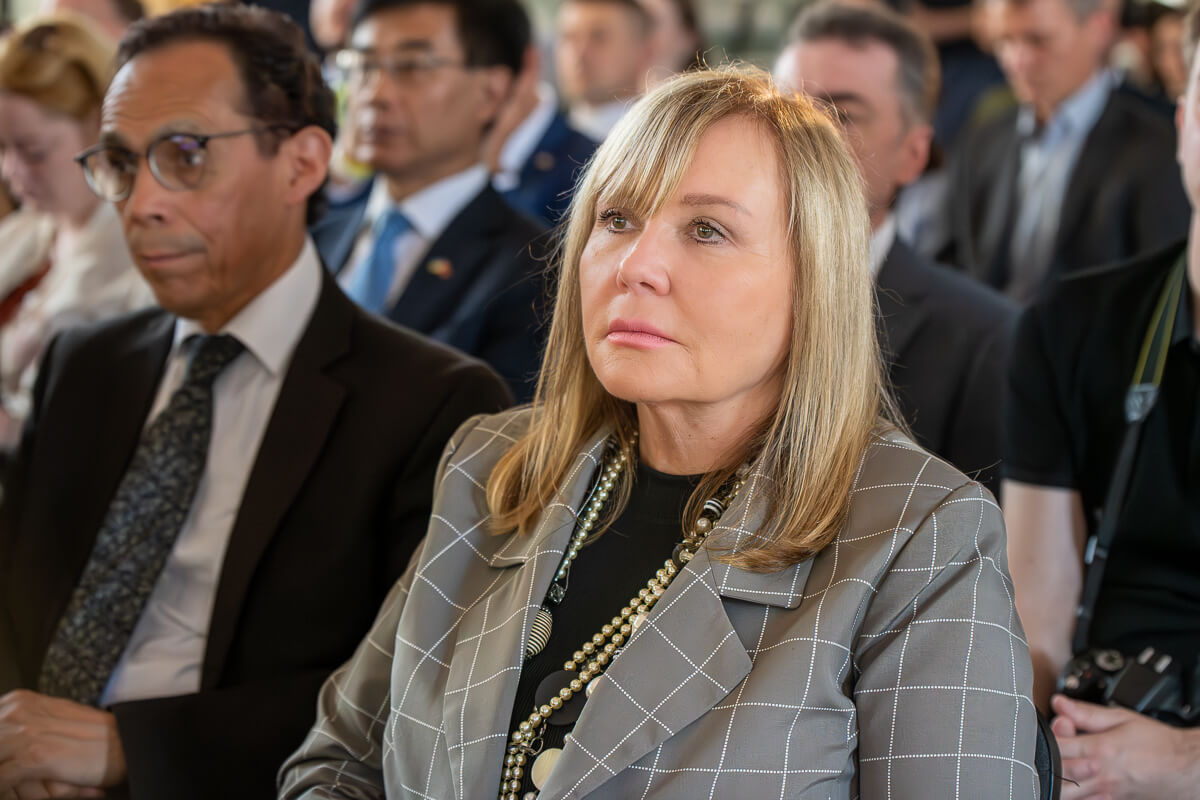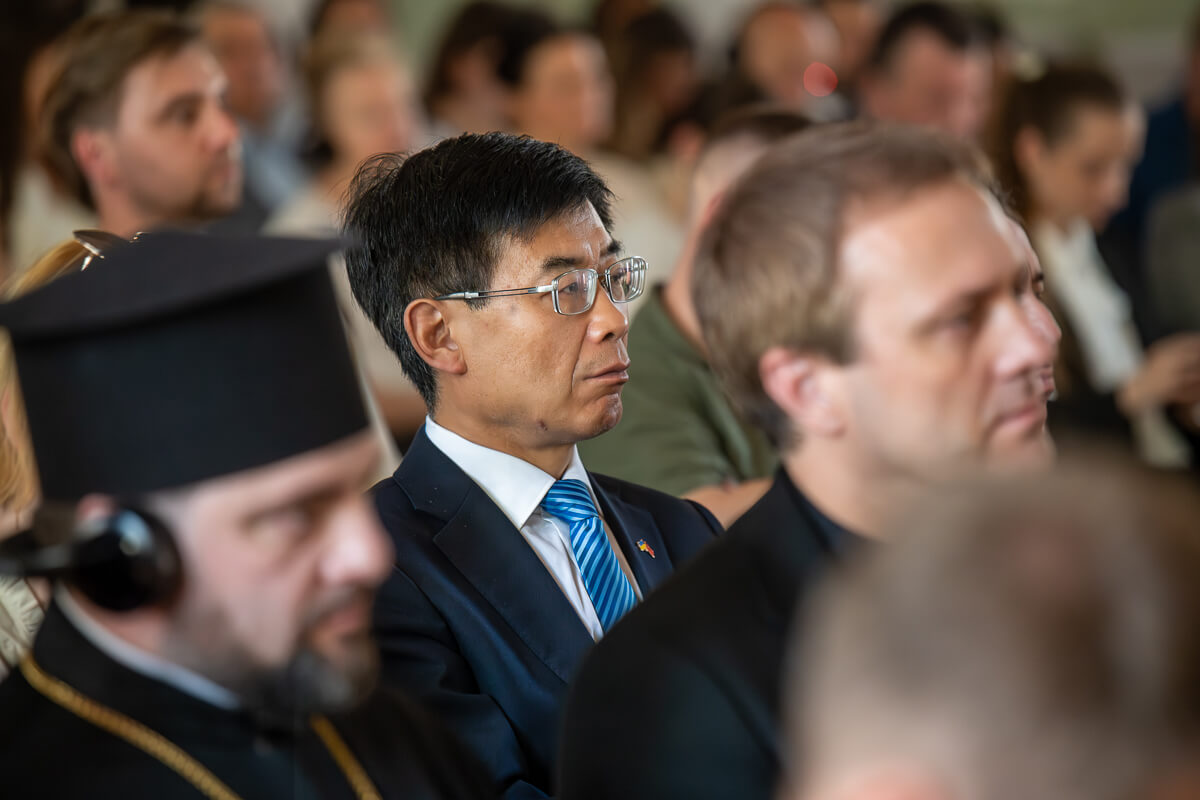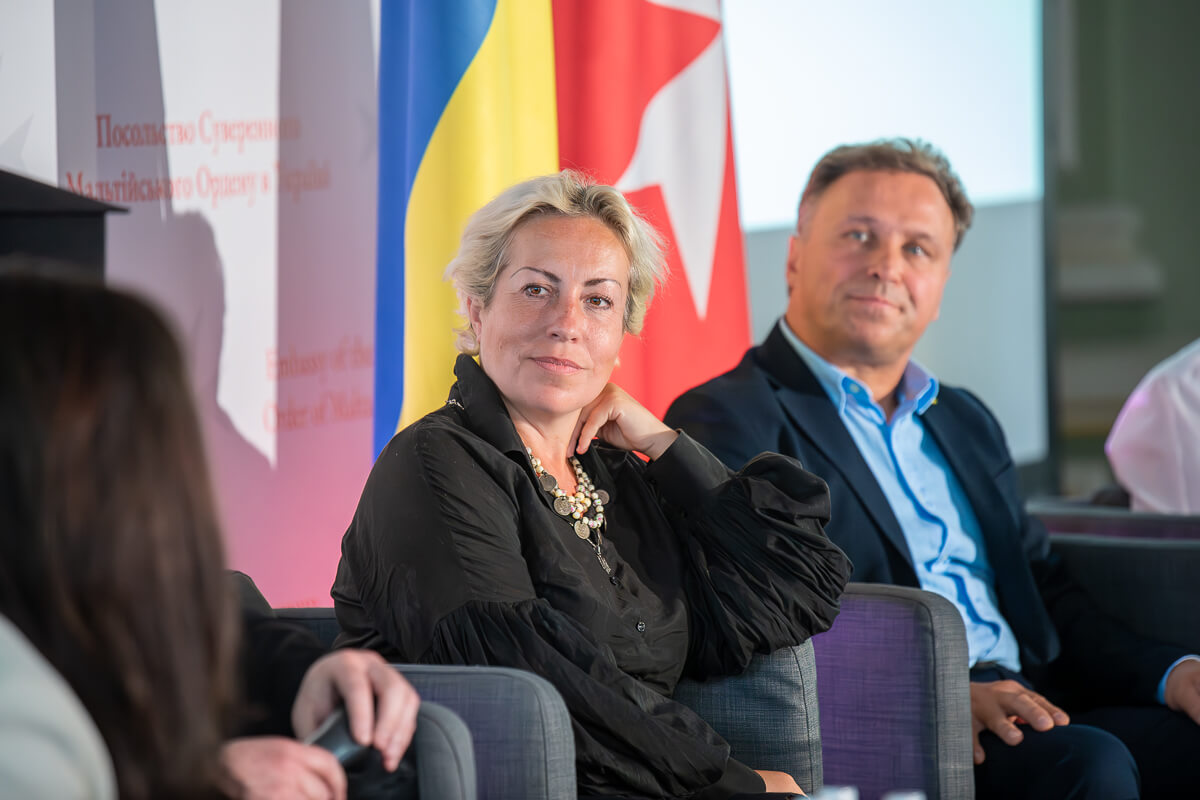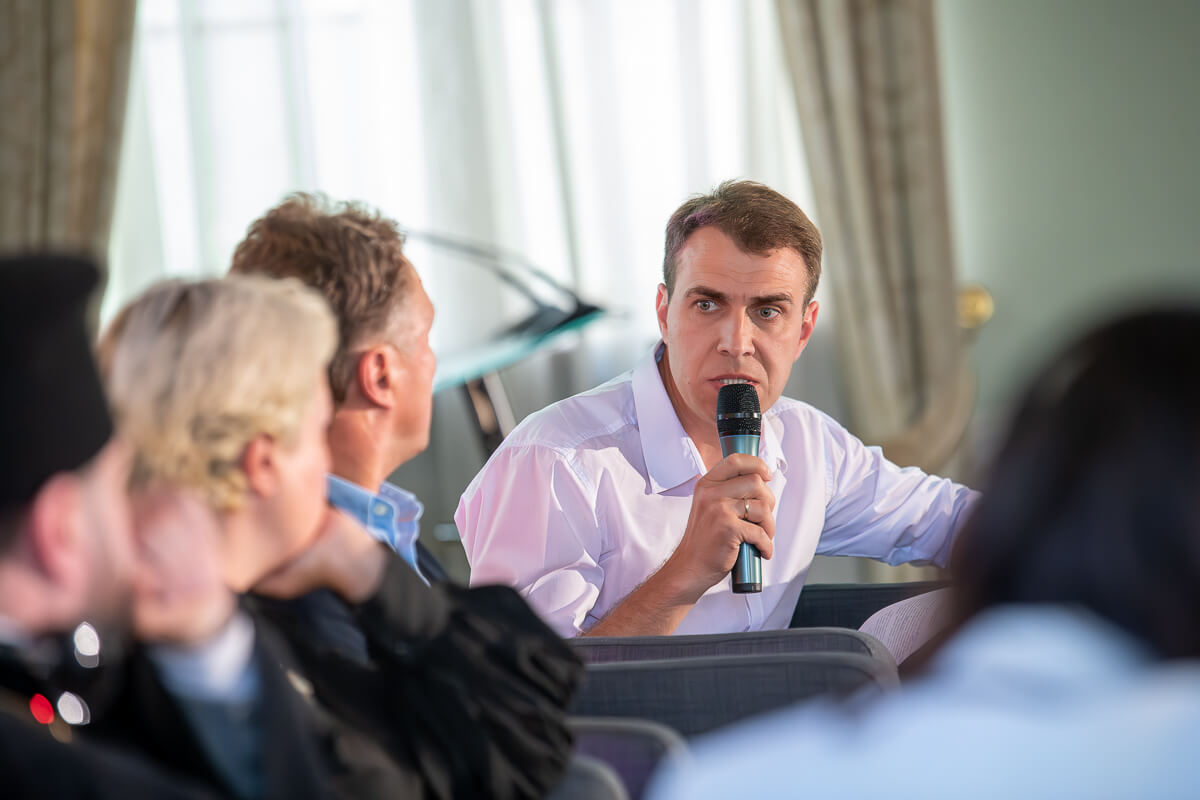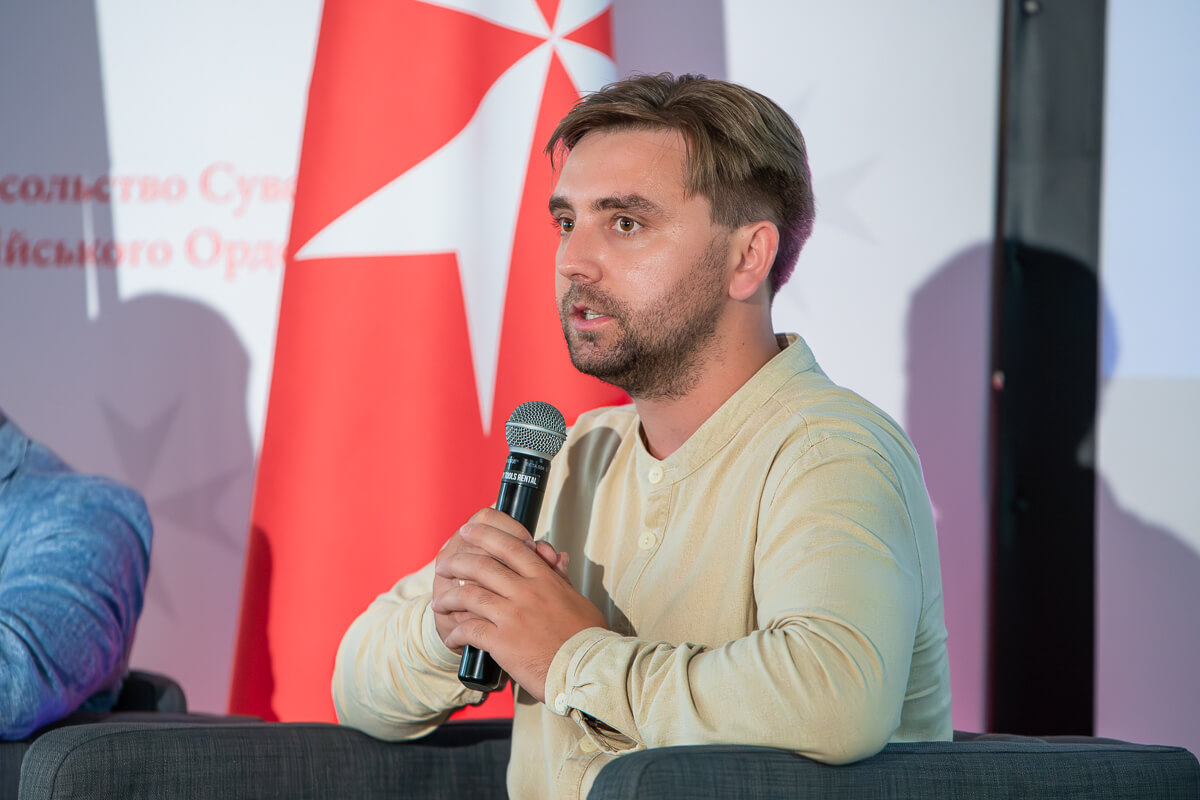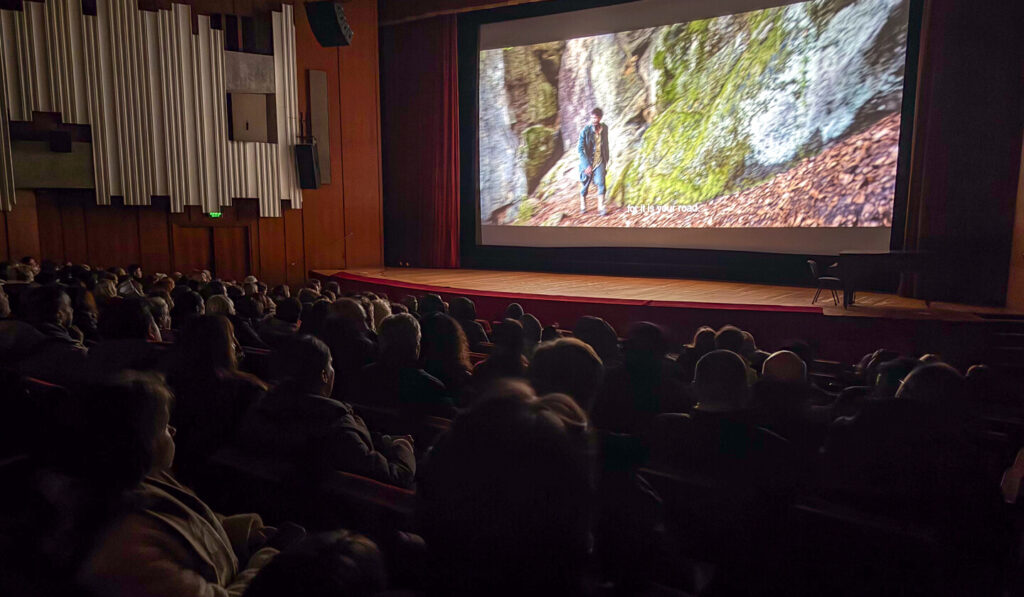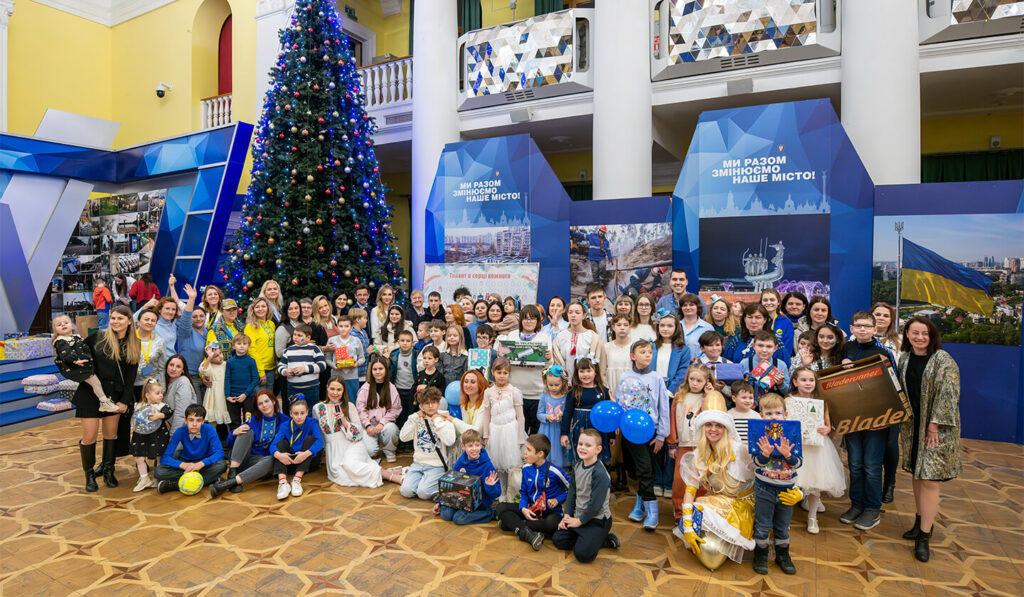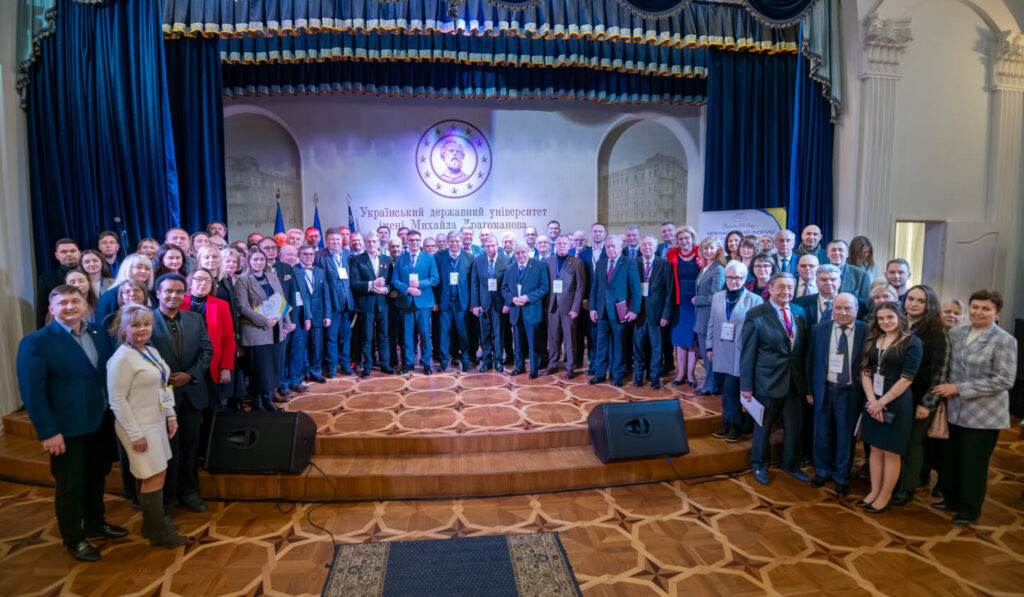On Friday, 4 July 2025, on the occasion of the Nativity of St John the Baptist, the Diplomatic Academy of Ukraine hosted an international conference titled Aspects of Humanitarian Diplomacy in the Context of the War: Cultural and Environmental Damages in Ukraine. The event was organised by the Embassy of the Sovereign Order of Malta in Ukraine in partnership with the Ministry of Culture and Strategic Communications of Ukraine, the Hennadii Udovenko Diplomatic Academy of Ukraine at the Ministry of Foreign Affairs of Ukraine, the Directorate-General for Rendering Services to Diplomatic Missions, the National Preserve ‘Kyiv-Pechersk Lavra’, and the UNESCO Desk in Ukraine.
Before the conference, guests were invited to view the photo exhibition …But Will Be Reborn in Glory and Strength, accompanied by music performed by bandura player Yaroslav Dzhus. The project features photographs of religious sites affected as a result of russian aggression against Ukraine. As of 31 January 2023, at least 494 religious buildings had been damaged, including Christian churches, mosques, synagogues, evangelical prayer houses, and others. In addition, conference participants had the opportunity to learn about the exhibition titled Zmiinyi: The Island Protected by the Gods, which displayed remnants of objects from the local destroyed historical museum. After the de-occupation of Zmiinyi, soldiers from the DOZOR Detachment of the State Border Guard Service of Ukraine retrieved the artifacts and transferred them for safekeeping.

The conference commenced with introductory remarks by Hennadii Nadolenko, Director of the Diplomatic Academy of Ukraine; Josef D. Blotz, Grand Hospitaller of the Sovereign Order of Malta; Antonio Gazzanti Pugliese di Cotrone, Ambassador of the Sovereign Order of Malta to Ukraine; Mariana Betsa, Deputy Minister for Foreign Affairs of Ukraine; Andrii Nadzhos, Deputy Minister of Culture and Strategic Communications of Ukraine; Serhii Vlasenko, Deputy Minister of Environmental Protection and Natural Resources of Ukraine; and Archbishop Ahapit, Abbot of St Michael’s Golden-Domed Monastery.
In his welcome address, Hennadii Nadolenko emphasised the importance and relevance of the conference topic, as more than 1,200 cultural heritage sites in Ukraine have been damaged or destroyed as a result of russian aggression, and almost a third of the country’s territory is mined. Hennadii Nadolenko adressed the participants:
‘Humanitarian diplomacy has to move forward, developing new strategies, tools, and international coalitions in order to protect what remains, keep a record of losses, and ensure the supremacy of justice and recovery […] Let us protect not only Ukraine’s present, but also its memory, identity, and heritage for future generations.’

Josef D. Blotz, Grand Hospitaller of the Sovereign Order of Malta, for his part, quoted the preamble to the UNESCO Constitution, which states that since wars begin in the minds of men, it is in the minds of men that the defences of peace must be constructed. He emphasised: ‘The restoration and preservation of culture and the environment, as well as the protection of cultural and ecological heritage, constitute the defence of the people’s identity and a message of hope for future generations.

Addressing the conference participants, Antonio Gazzanti Pugliese di Cotrone, Ambassador Extraordinary and Plenipotentiary of the Sovereign Order of Malta, highlighted the complex humanitarian challenges faced by the Ukrainian nation. He emphasised that the destruction of cultural heritage is not merely a collateral consequence of war, but a deliberate assault on national identity:
‘Protecting cultural heritage means saving the soul of a nation, preserving its dignity, roots, and social cohesion. This is the only way to pass on a message of hope to future generations.’

In her speech, Mariana Betsa, Deputy Minister for Foreign Affairs of Ukraine and Chair of the National Commission of Ukraine for UNESCO, called on international partners to intensify sanctions pressure on the russian federation, which continues to violate the core principles of UNESCO and the Charter of the United Nations, with the aim of holding the aggressor state to account. Сiting statistics on the damage inflicted by russia on Ukraine’s cultural and natural heritage, Ms Betsa emphasised:
‘Cultural genocide is part of the Russian Federation’s strategy to destroy Ukraine’s national identity. Russia must bear full responsibility for its crimes.’

The first discussion panel followed, focusing on the damage inflicted on cultural sites in Ukraine as a result of the war. Chiara Dezzi Bardeschi, Head of the UNESCO Desk in Ukraine, moderated the discussion, which brought together Archpriest Yaroslav Romanchuk, Rector of the Kyiv Orthodox Theological Academy; Ihor Poshyvailo, Director General of the National Memorial Complex of the Heavenly Hundred Heroes — Museum of the Revolution of Dignity; Milena Chorna, Head of the Association of Ukrainian Museums; and Taras Pshenychny, Deputy Dean of the Faculty of History at Taras Shevchenko National University of Kyiv. The panel discussed the impact of the war on the preservation of national heritage and cultural identity through the lens of collective memory, as well as the issue of damage to religious sites caused by russian aggression.
The second panel centred on the damage to natural sites in Ukraine. Dmytro Zaruba, Deputy Head of the State Environmental Inspection of Ukraine, chaired the discussion, which included contributions from Pierre Carlo Sandei, Head of the United Nations Environment Programme (UNEP) in Ukraine; Tetiana Tesolkina, postgraduate researcher at the Department of Ecology and Zoology of the Educational and Scientific Centre ‘Institute of Biology and Medicine’ of Taras Shevchenko National University of Kyiv; Oleksandr Lobov, specialist at the United Nations Development Programme (UNDP) in Ukraine; and Oleksandr Bonchkovskyi, research fellow at the Institute of Geography of the National Academy of Sciences of Ukraine. The panellists discussed environmental damage caused by russian aggression, the challenges posed by mined territories, and the impact of explosive remnants of war on local communities.
The conference served as an important platform for discussing the role of humanitarian diplomacy in safeguarding cultural and natural heritage amid russian aggression.





